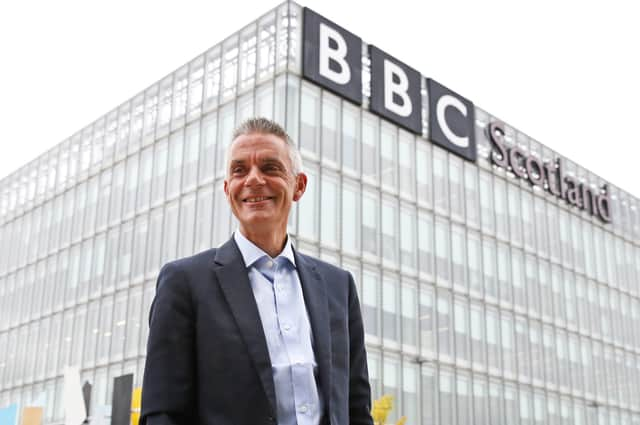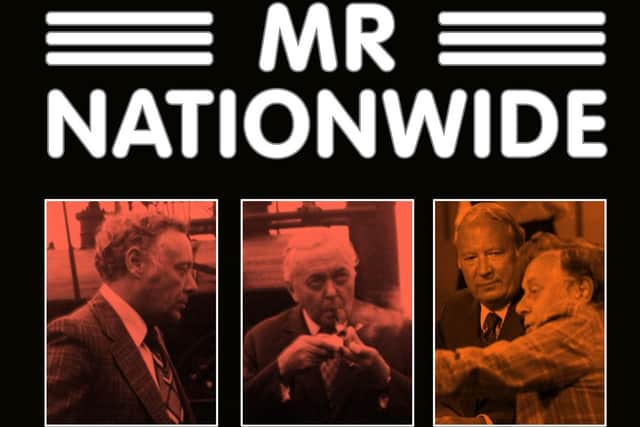As BBC goes Nationwide, it could learn from Michael Barratt – David Behrens


It was The One Show of its day, except that it didn’t condescend. Viewers were still assumed to be at least as intelligent as the people in the studio.
However, the programme was founded on the conceit that the BBC maintained the nation’s premiere local news network, which it did not. ITV had more regions and spent more money on each of them.
Advertisement
Hide AdAdvertisement
Hide AdYorkshire was a case in point. In Barratt’s home city of Leeds, the commercial channel had a full-scale network production centre while the BBC staff had to make do with a studio in an old church, furnished with hand-me-down technical gear from London.


Today the services are more evenly matched – but that’s because ITV’s local output has been scaled back, not because the BBC has upped its own. Within the Corporation, the regions have always been a backwater.
So what are we to make of its sudden determination to “better reflect” the life of the country outside the capital? Its new director-general, Tim Davie, promises that Newsnight and other programmes will be transmitted from across the country and that the North will have its own soap opera, rather like the ones ITV has been running with not a little success for the last 60 years. It will be, says Mr Davie, the Corporation’s biggest transformation in decades.
Advertisement
Hide AdAdvertisement
Hide AdIn reality, it’s a familiar narrative; another episode in a tired old serial about complacent media executives who are stirred into action only when their backs are against the wall.
It happened when ITV went on air and took away all the viewers; when Yorkshire got its own ITV region; when commercial radio was first licenced; and when breakfast TV started up. In each case, the BBC found itself on the back foot and had to suddenly undo the effects of years of inertia.
This time, the threat comes not from a rival broadcaster but from a Government close to the inevitable conclusion that the BBC’s funding model is an anachronism. In an age of viewing online, a tax on owning a TV set is simply unsustainable.
Mr Davie chose Bradford to illustrate the way his new BBC would serve its provincial audience. It was an area with scant local coverage, he said, and so would gain a permanent “peak time” radio station. But Bradford is not poorly served by the news media; only by the BBC itself. And the D-G is being disingenuous in calling his new service a radio station, when it will be on air for perhaps just a couple of hours a day. It’s a phone-in show by any other name.
Advertisement
Hide AdAdvertisement
Hide AdIt’s exactly the kind of double-talk Michael Barratt would have slapped down on Nationwide, in deference to his 11 million-strong audience. Today, their interests are secondary to those of the Corporation, yet those viewers are still around, and – as the former beneficiaries of free licences – the very people most affected by the financial upheaval ahead.
Mr Davie has been under pressure from the House of Lords to go easy on those who don’t now cough up the required £157. Lord Botham, the former cricketer, has demanded that the authorities do not prosecute anyone over 75. But the D-G’s response has been another fudge: no one would be leant on “at this time” was all he would say. That’s not much of a commitment. Nor could it be, when on the same day one of his colleagues was boasting that the BBC would receive more than £400m from that age group this year.
Implicit in the current initiatives is an acknowledgement that change is coming. But what kind of change? Most businesses faced with financial restructuring would seek to do less, not more; the BBC seems to assume it has a national mandate to behave differently. Yet there is little evidence for this. No one has been out on their doorsteps applauding the ten o’clock news these last 12 months; there has been no clamour for a hasty knock-off of Coronation Street.
Advertisement
Hide AdAdvertisement
Hide AdThe first rule of showbusiness is to leave the public wanting more. That’s what Barratt did in 1977 when he stepped down from the helm of Nationwide. In turning that old maxim on its head, today’s BBC may soon realise that in doing more of what it wants, it is giving the rest of us less of what we want to pay for.
Support The Yorkshire Post and become a subscriber today. Your subscription will help us to continue to bring quality news to the people of Yorkshire. In return, you’ll see fewer ads on site, get free access to our app and receive exclusive members-only offers. Click here to subscribe.
Comment Guidelines
National World encourages reader discussion on our stories. User feedback, insights and back-and-forth exchanges add a rich layer of context to reporting. Please review our Community Guidelines before commenting.